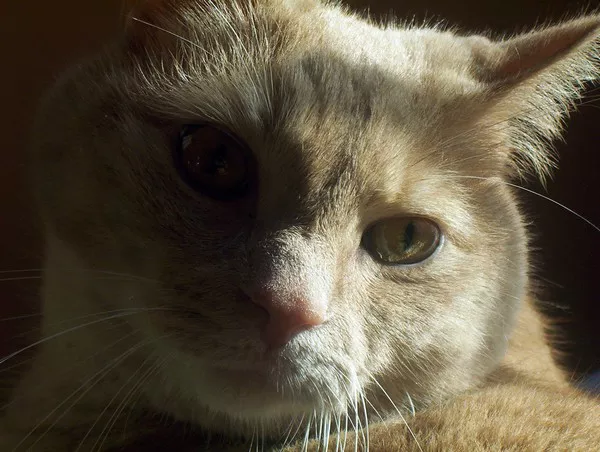Ragdoll cats are renowned for their gentle and affectionate nature, earning them the nickname “puppy cats” due to their propensity for following their owners around and seeking affection. However, like all cat breeds, Ragdolls can display aggressive behavior under certain circumstances. If you’re a Ragdoll cat owner wondering why your usually docile feline friend is exhibiting aggression, this article will explore potential reasons behind their behavior and offer guidance on managing and preventing aggression in Ragdoll cats.
Understanding Ragdoll Cats’ Temperament
Before delving into the reasons behind aggression in Ragdoll cats, it’s important to appreciate their typical temperament. Ragdolls are known for their laid-back and affectionate nature. They tend to be sociable, loving, and enjoy human companionship. These cats often become “floppy” when picked up, earning them their name. Ragdolls are generally not known for aggressive behavior.
Possible Reasons for Aggression in Ragdoll Cats
When a Ragdoll cat displays aggression, it can be surprising and concerning for their owner. Several factors can contribute to aggression in Ragdoll cats:
Pain or Discomfort: Cats may become aggressive when they are in pain or discomfort. It’s essential to rule out any medical issues as the cause of aggression. Dental problems, joint pain, or injuries can lead to irritability and aggression.
Stress and Anxiety: Ragdolls can be sensitive to changes in their environment or routine. Stressors such as moving to a new home, the introduction of a new pet, or changes in the household dynamics can trigger anxiety and result in aggressive behavior.
Territorial Aggression: Even though Ragdolls are generally easygoing, they may still exhibit territorial aggression, especially when they feel their space is threatened. This can occur if another cat or pet enters their territory.
Fear or Agitation: Ragdoll cats, like all cats, may become aggressive if they feel threatened or frightened. Loud noises, sudden movements, or unfamiliar people or animals can trigger a defensive response.
Redirected Aggression: Ragdolls can experience redirected aggression, where they become agitated by an external stimulus (such as a bird outside the window) and then redirect their frustration and aggression toward another pet or even their owner.
Lack of Socialization: Inadequate socialization during kittenhood can lead to fear-based aggression in Ragdoll cats. Cats that have not been exposed to various people, animals, and environments may become fearful and reactive.
Medical Conditions: Some medical conditions, such as hyperthyroidism or neurological issues, can manifest as aggression in cats. A thorough veterinary examination can help rule out underlying health problems.
Managing and Preventing Aggression in Ragdoll Cats
Addressing aggression in Ragdoll cats involves identifying the underlying cause and implementing appropriate strategies for management and prevention. Here are steps you can take to manage and prevent aggression:
Consult with a Veterinarian: If your Ragdoll cat’s aggression is sudden or unexplained, consult with a veterinarian to rule out any underlying medical issues. Pain or discomfort can often be the root cause of aggression.
Provide a Safe Space: If your Ragdoll is displaying territorial aggression or feels threatened by another pet, ensure they have a safe space where they can retreat to when needed. This space should include food, water, and a litter box.
Socialization: If your Ragdoll cat lacks socialization, gradually expose them to new people, animals, and environments in a controlled and positive manner. Use treats and praise to reward calm and non-aggressive behavior.
Reduce Stressors: Identify and reduce potential stressors in your cat’s environment. Maintain a consistent routine, offer plenty of play and enrichment, and provide hiding spots or cozy spaces where your cat can retreat if they feel anxious.
Positive Reinforcement: Use positive reinforcement to encourage good behavior. Reward your Ragdoll with treats, affection, and playtime when they exhibit non-aggressive behavior.
Behavior Modification: Consult with a professional animal behaviorist or trainer if your Ragdoll’s aggression persists. They can help you develop a behavior modification plan tailored to your cat’s specific needs.
Medication: In some cases, medication prescribed by a veterinarian may be necessary to manage aggression, especially if it is rooted in anxiety or fear. Medication should always be used under veterinary supervision.
Play and Exercise: Ragdoll cats benefit from regular play and exercise to expend energy and reduce tension. Interactive toys, puzzle feeders, and play sessions can help keep them mentally and physically stimulated.
Neuter or Spay: If your Ragdoll cat is not already neutered or spayed, consider this procedure. It can reduce territorial and aggressive behavior, especially in unaltered cats.
Consult a Professional: If your Ragdoll’s aggression continues despite your efforts, seek guidance from a veterinarian or a feline behavior specialist. They can provide personalized advice and interventions.
Conclusion
While Ragdoll cats are typically known for their gentle and affectionate demeanor, aggression can manifest in these cats under specific circumstances. It’s essential to identify the underlying cause of aggression and address it appropriately to ensure your Ragdoll’s well-being and the harmony of your household. With patience, understanding, and the right interventions, most cases of aggression in Ragdoll cats can be managed or prevented, allowing them to thrive in a loving and peaceful environment.

























